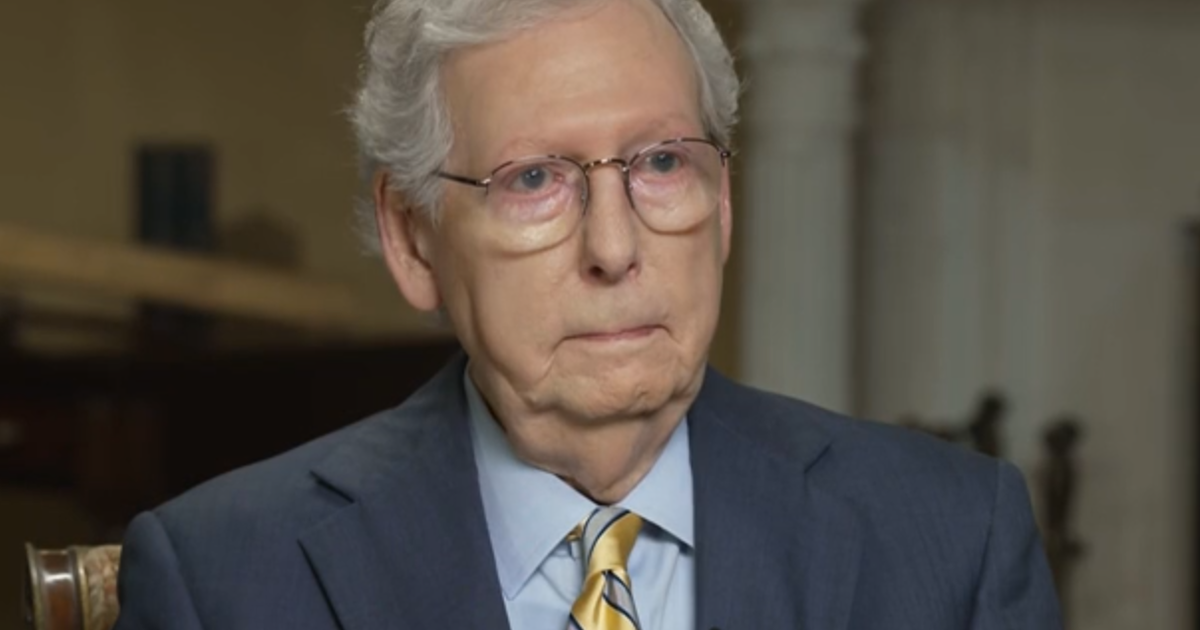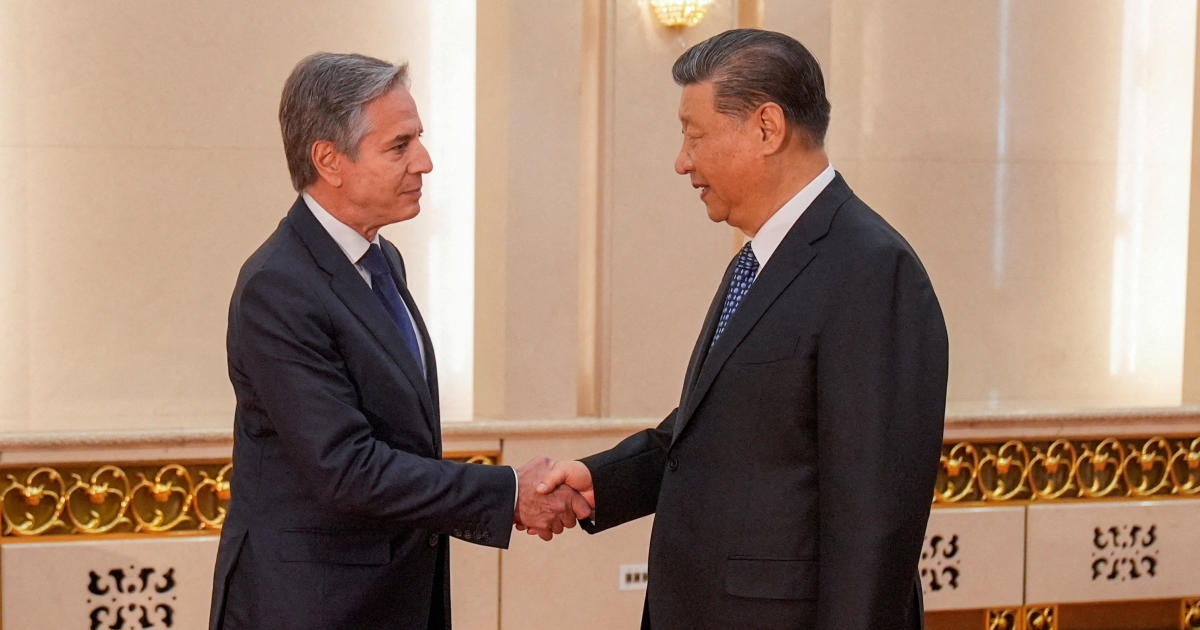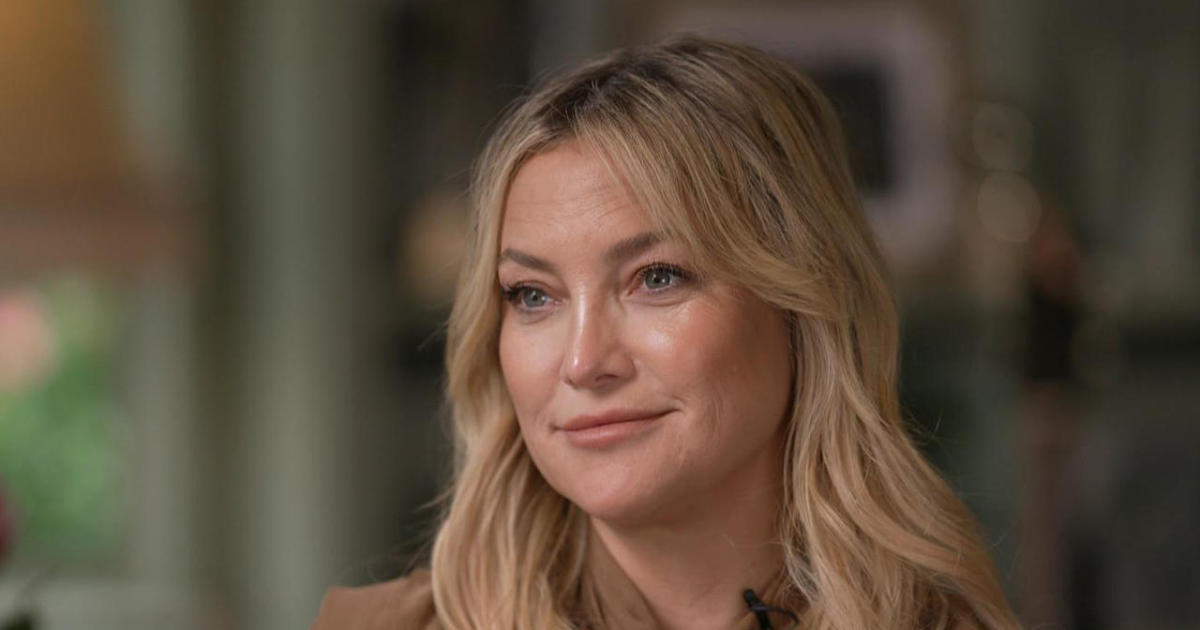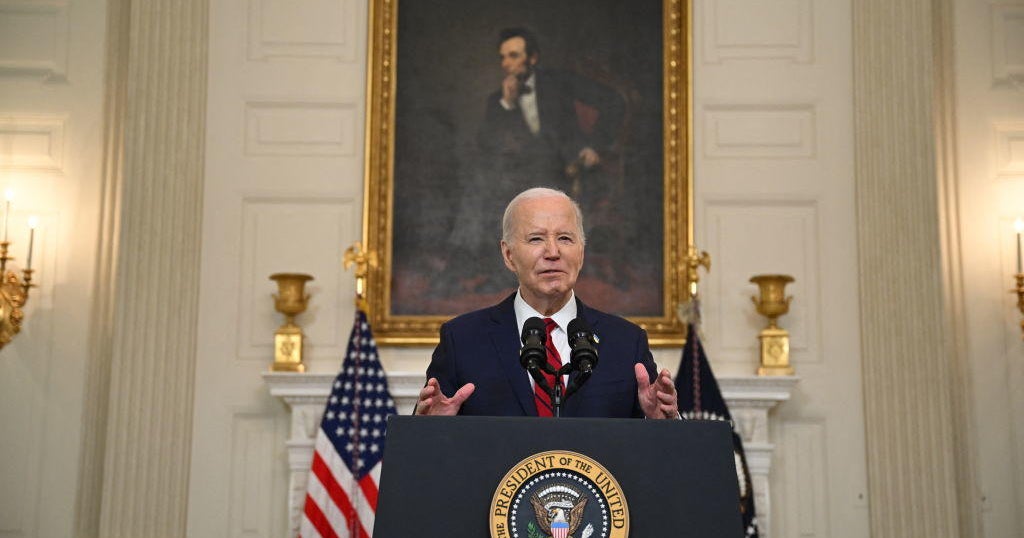Transcript: British Foreign Secretary Jeremy Hunt on "Face the Nation," June 2, 2019
The following is a transcript of the full interview with British Foreign Secretary Jeremy Hunt that aired Sunday, June 2, 2019, on "Face the Nation."
MARGARET BRENNAN: President Trump travels to London tonight, and he will be greeted by British Foreign Secretary Jeremy Hunt who is also vying for leadership of the country's Conservative Party and ultimately the title of prime minister. He joins us from London. Welcome to FACE THE NATION. We know that the president has given some interviews ahead of his arrival in the U.K. and he said of Boris Johnson, one of your rivals, "He would do a very good job. He would be excellent." He's made other comments. Should the president be weighing in on your election?
U.K. FOREIGN SECRETARY JEREMY HUNT: Well, we've gotten to know the president a bit over the last few years. Good morning, Margaret, by the way, and we're- we're quite used to the fact that he does the unexpected thing, and it's not going to affect the warmth of the welcome that we give him because Britain and America are two of the greatest friends you find anywhere on the planet. And we want to celebrate the fact that 75 years ago we had more than a million U.S. troops stationed in the U.K. fighting for our freedom. Over 400,000 Americans lost their lives in the second world war, and no two countries have done more to stand together for the values that you and I and everyone watching this show believes in, freedom, democracy, the rule of law, all those things that really, really matter and we're just delighted that President Trump is coming here so that we can celebrate that together.
MARGARET BRENNAN: The special relationship, indeed. In that interview, the president also said he likes you too. And he said that some candidates had asked for his endorsement--
FOREIGN SECRETARY HUNT: I'll take the compliments where I can get them.
MARGARET BRENNAN: Did you ask him for an endorsement?
FOREIGN SECRETARY HUNT: No, I have never asked, and you know, I think my job is to represent the British government. And I think that the worst thing anyone could imagine is a foreign secretary talking about the future leadership of the country when he's there to represent the current government and the current prime minister.
MARGARET BRENNAN: And I want to ask you about your work in that, but I have to ask you another uncomfortable question, and that's even worse because it's about the royals. The president had made some comment about Meghan Markle referring to her as "nasty" for comments she made about him back in 2016. Is any of this going to disrupt the welcome?
FOREIGN SECRETARY HUNT: I don't think it's going to disrupt the welcome at all because I think the other thing we've learned from the president is that you know regularly we have to agree to disagree, and there's a whole list of things that we don't agree with the administration on, but it doesn't affect the fact that we have the most important partnership that there is in the world for freedom, democracy, the rule of law the things, that really matter, and that's what we're celebrating.
MARGARET BRENNAN: I want to ask you about one of the things that the U.K. and the U.S. have had some disagreement on and that is the threat posed by Iran. The U.K. had wanted the U.S. to stay part of that international deal to freeze Iran's nuclear program. Obviously the president did not. Do you think that that decision and labeling the IRGC a terrorist group has contributed to the rising tension in the Middle East?
FOREIGN SECRETARY HUNT: Well, we've never disagreed with the U.S. about the threat posed by Iran, and we see the intelligence that the U.S. sees. We have a very close intelligence sharing relationship, and we see the destabilization that's happening in Syria, Iraq, Lebanon- across the Middle East, the Yemen as well. And so we completely agree that something has to be done to stop that because this is one of the most fragile regions on the planet. But we do want to make sure that Iran doesn't go nuclear. And we think that if Iran acquired nuclear weapons other countries in the region would be likely to follow suit. And that could be very, very dangerous. And so- and we have a very honest discussion that's why we signed up with the previous administration to the Iran nuclear deal. And we want to make sure that whatever happens as tensions rise, as they seem to be rising at the moment, we don't lose one of the big achievements of the last few years which is that Iran doesn't have a nuclear weapon at the moment. Just think how much worse it would be today if we were having to confront the possibility of an Iran with nuclear weapons. We don't want that to change.
MARGARET BRENNAN: Well, Ambassador Bolton has said they will bring evidence against Iran and this threat to the United Nations. I know you just met with him. Is the U.K. supporting the U.S. campaign to put more pressure on Iran?
FOREIGN SECRETARY HUNT: We absolutely recognize we need to put more pressure on Iran. And we agree that the status quo, even with the lack of nuclear weapons in Iran, the status quo is not sustainable when you have incredibly tense situations because of the activities of Hezbollah in Lebanon attacking Israel, because of some of what the Houthis have been doing to Saudi Arabia, because of the threats to American interests in Iraq. These are things that are not stable, they're not acceptable. And if we're going to find an accommodation both the U.S., both Ambassador Bolton, Mike Pompeo who I meet regularly, and the president, we all see the end game in this and sitting around the table and having talks with Iran, and it's a question of creating the context where those talks can be successful.
MARGARET BRENNAN: The U.S. has filed an extradition request with your government to have Julian Assange, the founder of WikiLeaks, here in the United States to face justice. We know U.N. officials raised concerns about human rights violations if he's sent here. Does your government take that seriously?
FOREIGN SECRETARY HUNT: Well, we have absolute confidence in the judicial processes in the U.S. The U.S. and the U.K. are the two countries that do more to stand up for the rule of law across the world. We- both our Constitution strongly respect the independence of the judiciary. But Julian Assange is someone who is alleged to have committed some very serious crimes, alleged to have led to people's deaths. And so it is absolutely right that he faces justice and he has no more reason to escape justice than anyone else who is alleged to have committed crimes. So I think what's happened is the right thing.
MARGARET BRENNAN: So if you do become prime minister you would not stand in the way of an extradition of Assange to the United States?
FOREIGN SECRETARY HUNT: Well we would have to follow our own legal processes just as the U.S. has to follow its own legal processes. But do I think- would I want to stand in the way of Julian Assange facing justice? No I would not.
MARGARET BRENNAN: President Trump has said one of the things he does want to speak to your current Prime Minister Theresa May about is the threat posed by China and specifically this company Huawei, which I know the U.K. has not made a decision as yet as to whether this firm would be allowed to help build out your internet, the 5G network. But Secretary Pompeo has said if you don't take this seriously the U.S. might not be able to share intelligence anymore with the United Kingdom. Why hasn't the U.K. agreed to what the U.S. is asking?
FOREIGN SECRETARY HUNT: Well we are taking it very seriously. We have some of the best cyber security capability in the world and we'd never take a decision that affected our intelligence sharing capability with the United States. And we have to look at the technical issues which are around whether buying products from a specific country could be a backdoor to espionage. And we're looking at those very carefully but we also have to look at the strategic issue which is that China's being very open. They've said they want to have a- an 80 percent market share of telecoms technology and in other areas like artificial intelligence, they want a 90 percent market share by 2025. And we have to ask as Western countries whether it's wise to allow one country to have such a commanding monopoly in the technologies that we're all of us going to be depending on. So those are very, very important discussions that we- we continue to have.
MARGARET BRENNAN: It sounds like you may be considering that. One of the things that the president has also said he wants to bring up with Prime Minister May is it seems his continued concern that the U.K. may have in some way or another worked with the CIA or FBI regarding what he calls the Russian hoax. He made these comments just last week. How does your government respond to this allegation? I know the GCHQ British intelligence has previously denied it but the president still suspects it.
FOREIGN SECRETARY HUNT: Well you know we have a very close intelligence sharing relationship and our default is always to say yes to our closest ally. If- if- if America asks us to do things, you guys are doing so much to defend Europe and defend freedom across the world. You know we would want to be cooperative but we would always do so within due process and we would never do anything improper and- and we don't have any secrets. So we're happy to discuss these things but one of the things that I'll certainly be discussing with the president and Secretary of State Pompeo is our concern about the growing strategy we seem to be seeing from Russia to interfere in democratic processes in free countries. And in doing so, seeking to discredit or destabilize democracies. And a country that I think is the greatest concern in this respect is Ukraine which is a very brave and very young and very fragile democracy. They are subject to enormous amounts of cyber attacks from Russia and we believe and I know that Mike Pompeo believes that we need to find a way of making an international red line so that countries know it is just not acceptable to try and interfere in the electoral processes of other countries.
MARGARET BRENNAN: But do I understand you saying there that the U.K. has not yet been asked by the U.S. for help in the probe the attorney general in this country is carrying out? But you continue to deny that there was any work with the CIA or FBI on the so-called Russian hoax?
FOREIGN SECRETARY HUNT: Margaret you'll forgive me if I- I talk in generalities but we obviously don't talk in the media about specific requests over intelligence sharing, except to say what I've just said, which is that we would always try and work closely and helpfully with our- our greatest ally because we recognize the important role you play in the world, and we would never of course do anything improper or seek to interfere with another country's electoral processes.
MARGARET BRENNAN: And lastly, President Trump talks a lot about a possible free trade deal with the U.K. Speaker Pelosi was recently in the area and said there is no way it would pass the U.S. Congress if, as a result of Brexit, there was a hard border put back in Ireland splitting the republic from the north. Is that something you could say that as Prime Minister you would prevent from happening?
FOREIGN SECRETARY HUNT: Well, I think I can put Speaker Pelosi's mind to rest at this because no U.K. government, no U.K. Prime Minister is ever going to be responsible for putting up a hard border on the island of Ireland because the- the peace process is every bit as important to the U.K. as it is to the Republic of Ireland. I mean, I grew up in the 1980s when you know we had bombs going off in Harrods and in Hyde Park and in Manchester. We suffered enormously from the Troubles as did people on both sides of the border in Ireland. And so we are absolutely committed from every fiber of our bodies to making sure that that peace process, a big achievement of John Major and Tony Blair, is preserved and protected.
MARGARET BRENNAN: Alright, Mr. Foreign Secretary. Good luck with your busy visit. Thank you for joining us.



